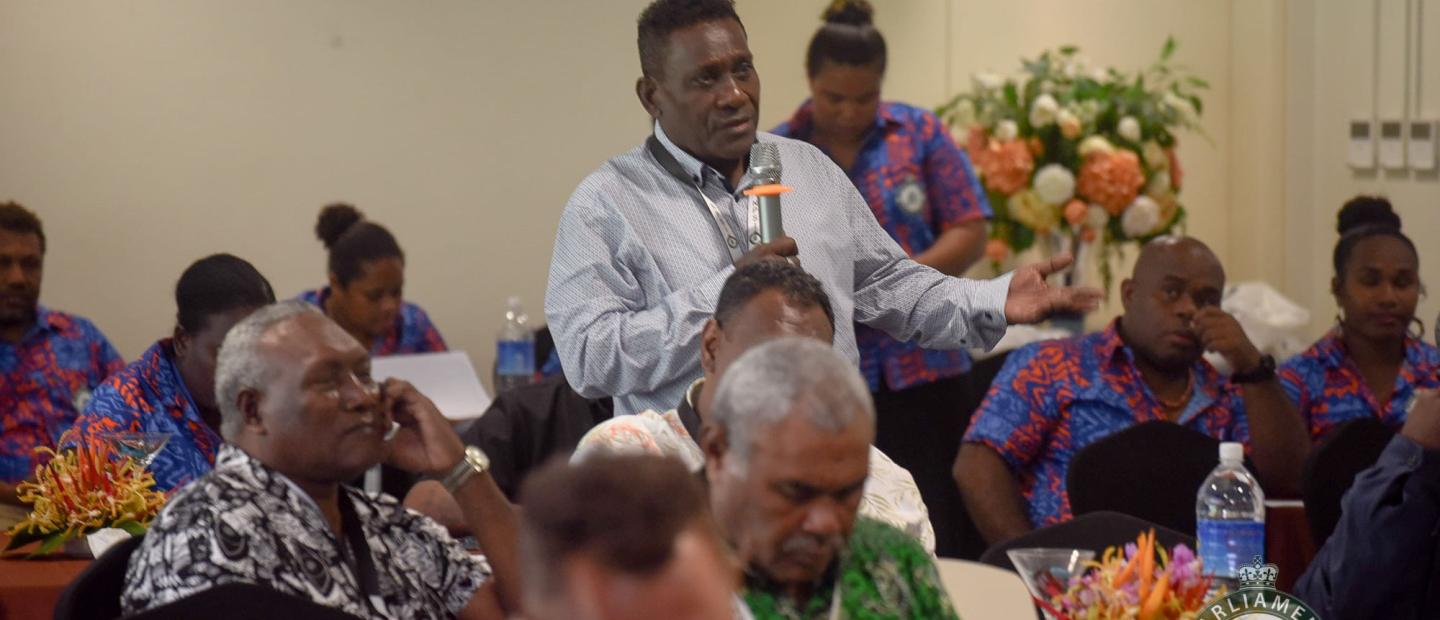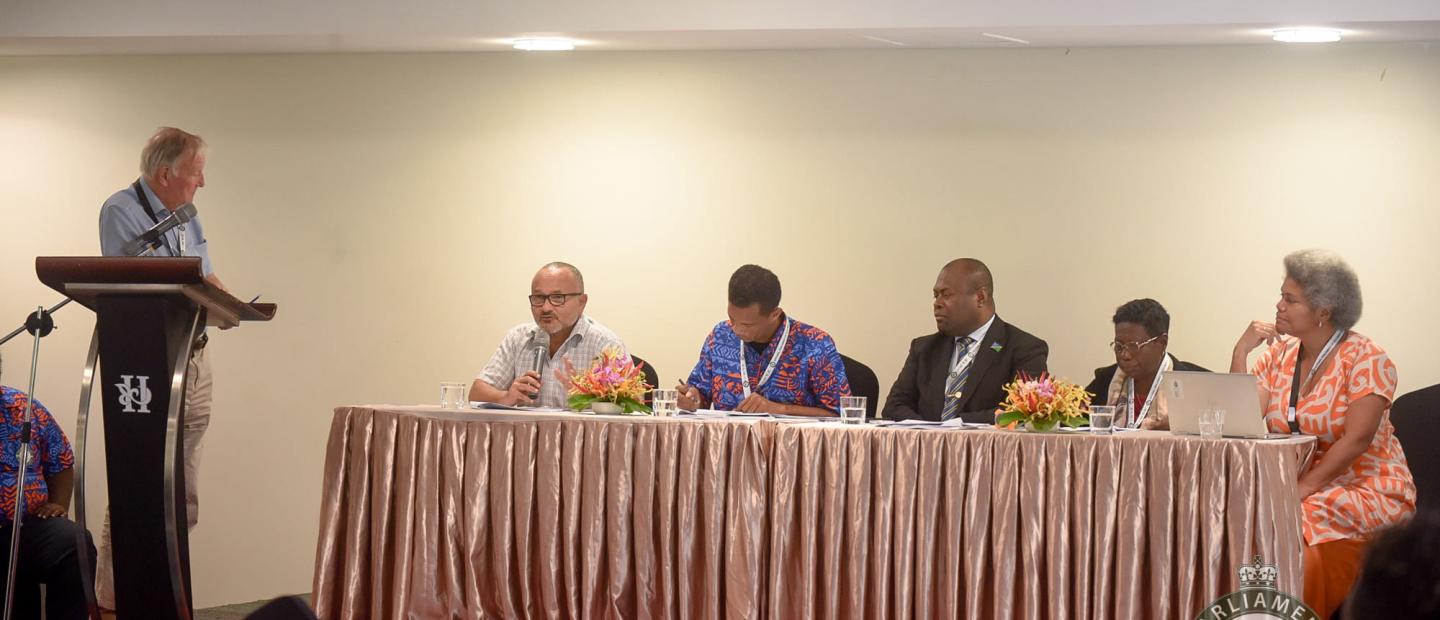The Induction, orientation and ongoing professional development program for Members of the 12th Parliament is currently underway at the Heritage Park Hotel after an Induction service at the SSEC on Sunday 16th June and a launched to open the program by the Speaker of the National Parliament Patteson Oti on Monday 17th June 2024.
Session 1 started on Tuesday 18th which looked at the Fundamentals of Democracy: the separation of powers, rule of law and responsible government.
This Session provides the principles and practical examples of Westminster Democracies and discuss their relevance to MPs. The first speaker, Mr. John Taupongi, addressed the principles of Westminster democracies while the second speaker, Hon. Lenora Qereqeretabua, addressed the day-to-day workings of these principles in the context of Fiji’s unicameral Parliament. The main focus of the morning discussion was the concept of responsible government.
A Panel discussions as part of the working sessions was moderated by Lord Bruce, and panelists included Hon. Lenora Qereqeretabua, MP, Fiji Parliament Deputy Speaker, Mr. John Taupongi, Hon. John Muria Jr, Solomon Islands Attorney General, Opposition Leader Hon. Matthew Wale MP, and Ms. Ruth Liloqula, Transparency Solomon Islands.
Panel members and participating MPs shared briefly about the challenges and the opportunities inherent in the system of parliament and executive relations in Solomon Islands, and sharing insight on political experiences.
Session 2 looks on the Debate on the pros and cons of Executive dominance this session was moderated by Hon. Stephen Lawrence. MLC of NSW Parliament. Panelists for this session include Lord Bruce, Hon. Peter Kenilorea Jr. MP. Leader of the Independent Group, Hon. Aupito Tofae Sua William Sio, Ms. Ruth Liloqula, Transparency Solomon Islands, Hon. Manasseh Sogavare, MP - Minister of Finance and Treasury, and Mr. Mark Taylor, MP.
The afternoon sessions explore the opportunities MPs have to influence change, at local and national levels. They cover the challenges involved in exercising effective and ethical leadership, while satisfying various parliamentary, political and community obligations – all under the gaze of the media.
This session will explore more deeply the multiple and interconnected roles MPs perform, including:
as parliamentarians – with legislative and scrutiny responsibilities
as politicians – with obligations to political parties
as community representatives – with obligations to constituents and other organisations.
The importance of managing expectations and resolving any conflicts of interest that may emerge was also addressed in this session.
On Wednesday 19th, the sessions will cover the law-making process: policy development to Act and Regulations, policy and legislation which will explore the nexus of policy and legislation through the lens of youth issues in Solomon Islands to be followed with Interactive Workshops that covers Effective scrutiny of Bills.
Other Masterclasses topics include confronting issues facing women and youth in politics, Subordinate Legislation – the missing link, working with Media Public Engagement – promoting your work, Making Good Decisions and Speaking with impact.
On Thursday 20 June sessions will surround Effective Parliamentary Oversight, The Work of Parliamentary Committees: An urgent social issue and Effective Budget Scrutiny. An orientation event at the National Parliament Building on Friday, 21 June will wrap up the program with an orientation even which will offer first-time members a guided introduction to parliamentary procedures and the services provided by the National Parliament Secretariat.
The induction program will provide MPs with a comprehensive understanding of their key responsibilities: lawmaking, oversight, and representation. By exploring themes such as responsible government, the separation of powers, and public leadership, the program facilitates active engagement among MPs and experienced facilitators. MPs will also reflect on successful engagement strategies and their roles within the parliamentary framework.
International facilitators assisting local facilitators are from the New South Wales Parliament, PNG Parliament, New Zealand Parliament, Fiji Parliament and the UK Parliament.
The induction program is expected to not only enhance MPs' understanding of their constitutional roles but also help them establish development priorities, personal goals, and actionable plans for their term. Continuous professional development activities following this program will further address issues raised and other priorities for knowledge and skills-based capacity building.
This Induction is made possible through the assistance of UNDP Solomon Islands , Parliament of NSW , Westminster Foundation for Democracy , New Zealand High Commission- Honiara, Solomon Islands , The Embassy of Japan and other supporting stakeholders.

